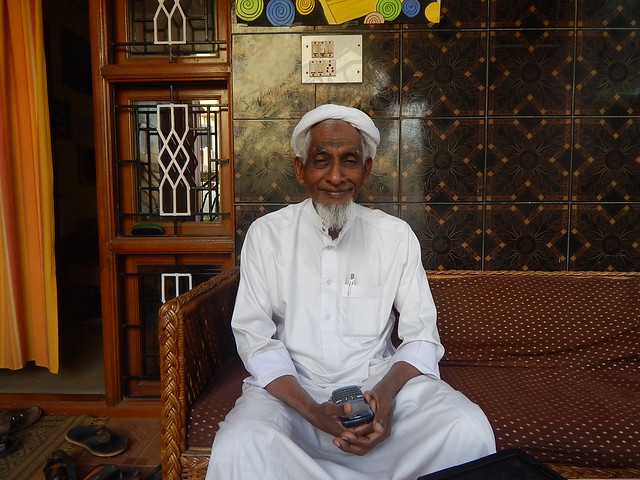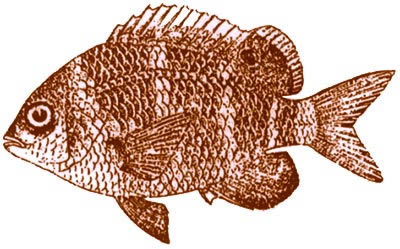By Shaik Zakeer Hussain, TwoCircles.net,
Bangalore: This year, like many probable years in the past, Ali Manikfan will be celebrating Eid al-Adha in Calicut, Kerala. “They are forcing me to come there,” he says, referring to his friends and admirers, who are, for quite obvious reasons, large in numbers. Though he is excited, as men of his age are to meet their friends, he is also annoyed and bemused.
“The whole world is celebrating Eid on the 15th, but in India, we are told the festival is on the 16th, how is it possible for us in India to have a different Eid,” he laments. “We have doctors, engineers, philosophers, we have so many educated people, how come then, and people are being fooled.”

Ali Manikfan
Since 1991, he has been rigorously urging Muslims all around the world to follow a unified lunar calendar, which he has designed. He says by adopting such a calendar, we can avoid the confusion which arises due to dependence on the Gregorian calendar, which he says has its own follies. He then wrote down a mathematical calculation to show, how the Lunar calendar is scientifically more superior to the Gregorian calendar and why, based on those calculations and arguments, which were impenetrable to my dud mind, was important to change the calendar system. “It is his uncompromising stand on western world view, the most popular one being his views on Gregorian calendar, that I like about him the most,” says Dr. Auswaf Ahsan, Managing Editor at Other Books, a book publishing house.
Ali Manikfan is a marine researcher; he is also an ecologist, shipbuilder, agriculturist and a polyglot. Besides his native Divehi, he is proficient in English, Hindi, Malayalam, Arabic, Latin, French, Russian, German, Sinhalese, Farsi, Sanskrit, Tamil and Urdu and this is a man, who has no more than three years of formal schooling. This might read like a story about a man straight out of history, as men who know a lot about a lot of things are a rarity these days, but this septuagenarian is a real deal.
Manikfan was born into an aristocratic family on the 16th of March 1938 to Musa Manikfan and Fatima Manika in the Minicoy Island of Lakshadweep. His ancestors migrated to Minicoy from Maldives centuries ago, like the ancestors of all indigenous inhabitants of the island, forming the basis for the adage, ‘all the islands in Lakshadweep are the same, only Minicoy is totally different.’
His father was the Amin (Chief civil official) of Minicoy and due to lack of formal schools in the island, he sent his son to Kannur in Kerala for his education. In Kannur, Manikfan says, he soon realized school education was not of his liking and got disillusioned with the system. He says, “When I used to ask questions, my teachers, were unable to give me answers.” He returned to Minicoy, after only three years of schooling.
According to him formal schooling kills creativity and does not allows a child’s mind to grow beyond his prescribed subjects and lessons. He says children should be allowed to absorb the nature around them and that is the best way to learn. He believes parents and teachers should be able to understand the child’s interests and based on that, should direct the child to learn things that will equip him or her to grow. Being a firm believer in his ideas, he allowed his own children to grow intellectually through exploration and inquiry and did not provide them any sort of formal education. His two daughters are school teachers now in Tamil Nadu and his son works as a ship engineer in Mumbai.

Sohar, Sindbad the Sailor’s replica ship built under the supervision of Ali Manikfan
After returning to his native land, he began visiting the lighthouse and marine observatory there, where he met many research scholars, whom he befriended. He says he started learning, “whatever they could teach.” It was, during his inceptive, never satiating quest to know anything and everything, that he met the then director of the Central Marine Fisheries Institute (CMFRI), Dr. S. Jones. “He was looking for an assistant to help him in his research on marine life, and I was asked to apply” says Manikfan, whose name was recommended to the eminent marine biologist by a mutual acquaintance.
Dr. Jones would later write about the prodigious young man in his book, ‘Fishes of the Laccadive Archipelago’:
This very book bears testimony to the part played by Mr. Ali Manikfan of Minicoy Island. He collected the maximum number of species and ascertained their local names. Ali Manikfan is a very knowledgeable person and his dedication to the research of marine species is total. He has the best qualities of a scientist in him. This young man has been such a great help and encouragement for me in my studies that I am greatly indebted to him.
For his role in the research, Dr. Jones named a new found fish species as Abudefduf manikfani after Ali Manikfan. He went on to work in this field for twenty years.
During these years, he developed a great deal of interest in environmentally friendly agriculture and bought some 15 acres of land in Valioor in Thirunelveli district, Tamil Nadu, which he calls, ‘Do nothing farm’. Similar to his belief that children’s learning should grow naturally through observation and practice, he says trees and plants should also be allowed to grow naturally without any artificial interference. He propagates less watering, saying that the roots, when allowed to grow, will find its own water and by excessive watering, we are hampering its God given ability to search for sustenance, he says. Today his farm is a thriving lush ecosystem, with various fruit and flower bearing trees and plants.
However, his most grandiose achievement came, when Tim Severin, the famous British explorer, historian and writer, called him to build a ship, similar to the one, the legendary Sindbad the sailor, used in his journey some twelve centuries ago. Manikfan, whose ancestors had used similar boats in antiquity to sail to the island of Minicoy and probably other parts of the world, went to Oman, to build it. It took him and his team of carpenters one year to build the ‘Sohar’, eponymously named after the Omani city, from where Severin traveled 9,600 km to China. The writer described his eight-month long journey in a book, The Sindbad Voyage, which won the ‘Thomas Cook Travel Book Award’ in 1982.

Abudefduf Manikfani
Throughout his life, Ali Manikfan has lived a life, in harmony with his natural milieu, a life which has found inspiration and roused creativity from it to its most productive effect. Be it his windmill, designed by using palms and a car dynamo, generating electricity or a refrigerator that worked with the kitchen heat or a roller-driven motorcycle, which he used to travel from Tamil Nadu to New Delhi, he has shown the world, how life can be lived in self-reliance and not overtly depend on superficial materialism.
But the question, which arises, is living a life of self reliance possible, is it possible for a person to excel in multiple fields, especially, when education is so compartmentalized, where there is so much narrowness? The ancients, even with their limitations, did not refrain from pursuing different fields of knowledge. We have the examples of Ibn Sina, who was a first rate philosopher, astronomer, mathematician, physician, geologist and much more, then there is Leonardo da Vinci, Ibn Rushd and many others. So, are the Polymaths an endangered lot? Ali Manikfan, though doesn’t agrees, he is skeptical about the possibilities of his type in future. He says, people don’t have time to reflect any more, there are so busy with their lives, which has been decided for them by society, which they themselves are a part of, that doing anything else would be an aberration. “It is going against the tide,” he says.

